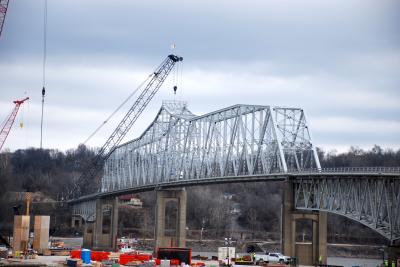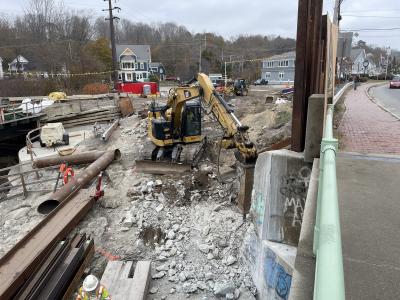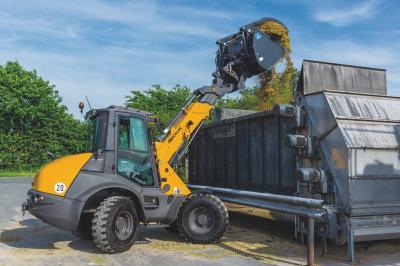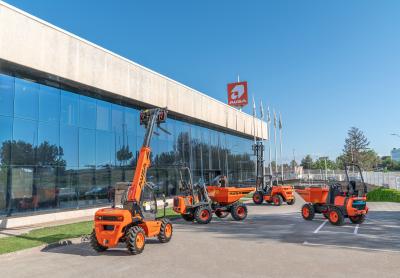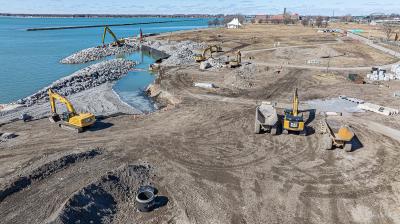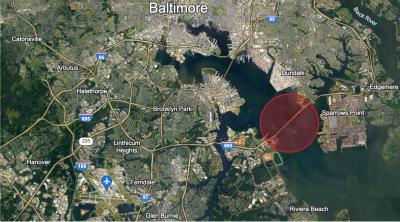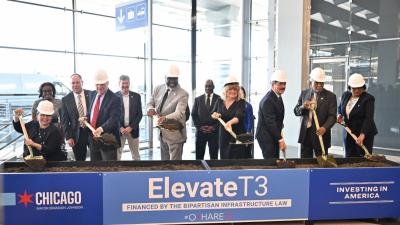In many ways, rock crushing professionals mirror their counterparts in the ferrous and nonferrous scrap metals processing markets.
Each is trying to make the most of what is available to them. Each has a commitment to making their operation as efficient and productive as possible. And each is adept at quickly identifying an area of the process that is either problematic or can be improved upon.
Anchor Stone Company’s Tulsa, OK, quarry –– a site that processes in excess of 3 million tons of limestone product each year –– is an example of such proactive thinking.
Having identified a pair of horizontal shaft impact crushers as the least efficient — and environmentally- unfriendly — part of its processing stream, the company replaced them with a single VSI from Cemco Inc., the manufacturer of the Turbo line of crushers. The result was an immediate upturn in efficiency and a number of benefits it had not even foreseen.
The Material World
Anchor Stone Company operates two quarries in the nation’s midsection, one in Joplin, MO, and the 320-acre Tulsa, OK, site. According to Plant Superintendent Dave Delozier, the Tulsa quarry generates a broad range of products.
“We probably create more than 20 different products at this site; from manufactured sand to 1.5-inch base to 36-inch rip rap and everything in between,” he said. “We designed our system for flexibility in product size and have, over the years, changed according to the demand for product. Currently, almost half our product goes into 1.5-inch road base but the remaining half is pretty varied.”
Material is primary crushed in a Cedarapids 5348 impactor and sent to a surge pile. From there it is run across an 8X20 Simplicity triple-deck, dual-drive scalper.
Oversize material is sent to a secondary crusher –– a Cedarapids 5064 HSI. It is then routed to a pair of Cedarapids 8X20 shaker screens sized for 1.5- and 2-in. separation. Screened material is piled for use as road base. Material that exceeds the 1.5-in. size is sent for additional processing.
It is this area which had, in the past, relied upon a pair of horizontal shaft impact (HSI) crushers that had proven problematic for Anchor and were found to be in need of improvement.
Different Unit, Same Results
Anchor had experienced a similar situation at its Joplin, MO, plant, though on a much smaller scale. It was felt that the change made at that plant could prove equally productive in Tulsa, according to company President Tom Snyder.
“About a year and a half ago, I met Neil Hise, Cemco’s owner and president, at an NSSGA board meeting and I explained that I was looking for ways to increase production at our Joplin quarry,” he said. “After several meetings at which we looked at all the options available to us, we sealed the deal, installed a Cemco Turbo 96 and it has really performed well for us. So when faced with our situation at Tulsa, I knew the direction we wanted to go, but also knew we would need a larger VSI. Cemco’s Turbo 160 replaced the existing pair of HSIs and it has done an excellent job with marked, measurable improvements in a number of areas.”
Some of those improvements include a better product reduction and better tonnages through the system, said Snyder. The process at Tulsa features a closed-loop recirculation system which, in the past, was certainly being utilized to the fullest.
“Since adding the VSI, we have seen a 45 percent upturn in material being processed on the first pass. The higher first-pass production rates lower the recirculation loads, thereby increasing our screening efficiencies,” he said. “As a result, our tonnages are up to better than 700 tons an hour which is what we were looking for. What has been a pleasant surprise for us is the fact that the new unit generates far less minus four-inch material than we would have thought. Neil said the VSI would keep that material down to a minimum, but we were initially skeptical. Turns out, he was right.”
Snyder added that, with the new VSI in place, Anchor is making more of the Class A products it needs –– the concrete stone and asphalt materials.
“In fact, since installation of the new unit, many of our customers who come in, ask us what has happened on top of the hill –– the area where we wash our rock,” he said. “In the past, we had to struggle to get any volume of inventory on the ground up there. Now, working the same number of hours, we always have a nice volume of inventory on hand. It has made a tremendous difference for us.”
Half the Headaches
It’s no surprise that replacing a pair of machines with a single unit reduces the potential for problems by half. According to Delozier, however, making the move to the single impactor has yielded additional benefits as well.
“The difference in maintenance and uptime has been like night and day,” he said. “It was not uncommon to be down for six hours to change a set of bars in either of the horizontal units. Similarly, if a belt plugged or one of the crushers stopped for any reason, we were down an average of three hours getting them back online. And, when those crushers were down, essentially the whole plant was down. With this unit, we just start back up and we are making product.”
Anchor’s crusher, Cemco’s 700 hp Turbo 160 features the company’s V-Twin design, which places both motors on one side of the unit. This allows ideal loading of the pedestal bearings as per the bearing manufacturer’s specifications. Hise said despite the 160 being the company’s newest crusher, Anchor’s unit is already being modified to better meet its needs.
“Currently, the Turbo 160 they have in place at Anchor offers a 48-inch three-shoe impeller table,” he said. “However, they are looking to increase the volumes of their ’chips,’ the most desirable material, so we are currently working on upgrading that unit to a four-shoe table. The unit’s design features 26 chrome white iron stationary anvils which enable the company to maintain those steady 700 plus TPH rates even with a nominal size rock in the six-inch range.”
Yet another benefit cited by Delozier, is a much a cleaner quarry environment. He said the units they removed generated massive amounts of dust –– more so than they were comfortable with.
“The operation runs much cleaner now which, even though we are in a fairly rural location, still makes us feel better,” Delozier.
Communication Is Key
Support is, obviously, a primary concern for all purchasers of aggregate processing equipment and Anchor is no exception. Delozier said Cemco was excellent during the installation phase and has proven equally committed long after the sale.
“We started installation on a Friday and went online the following Wednesday –– and that was with a holdup from the electrical contractor. It was really a smooth transition,” he said.
Cemco’s director of special projects, Mike Neal, on the other hand, cites Anchor’s role as being equally critical in making the addition to their process work as it was designed.
“Anchor has done an excellent job training its people how to properly run and maintain our equipment,” he said. “There are any number of processors who won’t look at a crusher until there’s a problem and then demand that something, be done quickly. Anchor’s knowledge of the equipment in use out there helps both them and us ensure that any downtime at all is minimal; open lines of communication can definitely be invaluable.”
Anchor currently manufactures a broad range of products including a 1.5-in. crusher run, screenings, No. 57 concrete stone, .75-in. chip, .5-in. chip and manufactured sand. Markets include ready-mix concrete suppliers, manufacturers of asphalt, commercial building sites, manufacturers of block and highway contractors. CEG
Today's top stories



